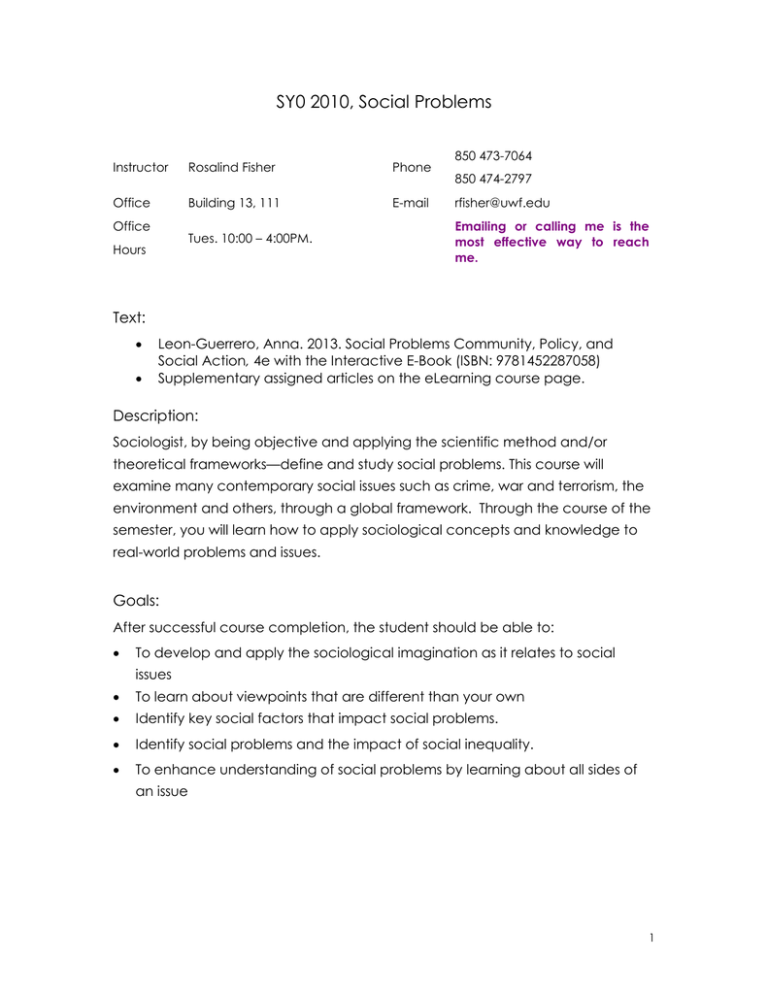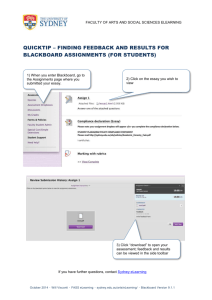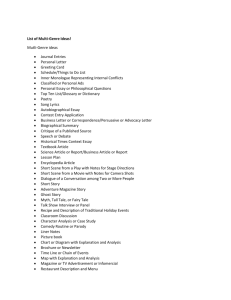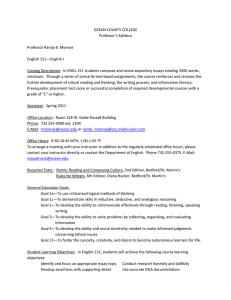SY0 2010, Social Problems - University of West Florida
advertisement

SY0 2010, Social Problems Instructor Rosalind Fisher Phone Office Building 13, 111 E-mail Office Tues. 10:00 – 4:00PM. Hours 850 473-7064 850 474-2797 rfisher@uwf.edu Emailing or calling me is the most effective way to reach me. Text: Leon-Guerrero, Anna. 2013. Social Problems Community, Policy, and Social Action, 4e with the Interactive E-Book (ISBN: 9781452287058) Supplementary assigned articles on the eLearning course page. Description: Sociologist, by being objective and applying the scientific method and/or theoretical frameworks—define and study social problems. This course will examine many contemporary social issues such as crime, war and terrorism, the environment and others, through a global framework. Through the course of the semester, you will learn how to apply sociological concepts and knowledge to real-world problems and issues. Goals: After successful course completion, the student should be able to: To develop and apply the sociological imagination as it relates to social issues To learn about viewpoints that are different than your own Identify key social factors that impact social problems. Identify social problems and the impact of social inequality. To enhance understanding of social problems by learning about all sides of an issue 1 Resources: This class will use the on-line eLearning site frequently for handouts, lecture notes, assignments, etc. Basic computer savvy and access is important. Reasonable accommodations are available for students with documented disabilities. If you need an accommodation to participate in this class, contact, the Office of Student Disability Resource Services at 474-2387, as soon as possible. They will assist you in documenting your disability and requesting needed services. Requirements: I have expectations regarding student behavior and performance. Be sure you read, understand and abide by these requirements! 1. If you are having problems in the class please talk with me, before dead week to seek help. My goal is to provide you with an understanding of the material. I will do what I can to help you before dead week, after that it is too late. 2. The University of West Florida considers plagiarism a serious violation of the Student Code of Conduct, which is subject to disciplinary action. Cheating and/or plagiarism will merit an automatic failing grade for this course. Plagiarism applies to any material written by someone else such as material published in books, magazines, journals and newspapers. It may also include lyrics, charts and graphs, and materials published on Web sites. When you use information from these sources, you must properly cite the sources utilized. 3. The creation of a "Learning Environment" requires that you actively participate. This means that simply reading assigned material, taking exams, and writing papers, is not enough; you must always submit your best wor. 4. Remarks of a personal and/or derogatory nature are always out of order. Do not engage in disparaging remarks regarding race or ethnic background, religion, sex, sexual orientation, age, political party, disability, socioeconomic background, etc. 5. Meeting the deadlines is very important to your grade. Your written assignments must be uploaded in to a drop box on the eLearning course 2 webpage. Failure to submit your work by the 11:55 PM on the Friday deadline will result in a failing grade for the assignment. Evaluation: Students’ comprehension of the materials included in class readings and via online quizzes and on-line assignments. Any assignments too late for the dropbox or missed will result in an F. Do not ask for an exception. There are 340 points possible to earn in this class. There will be four quizzes, each worth 40 points, two discussions 40 points each, and one paper worth 60 points. MEDIA ANALYSIS ASSIGNMENT For this assignment, you are to investigate and compare coverage of one issue from both mainstream and alternative sources. Since you’ll be comparing reporting across sources, it is probably easiest to address an issue that is currently hot such as the economy, the conflict in the Middle East, corporate corruption scandals, gay marriage, the war in Iraq, or immigration issues. 1. Read at least one mainstream print article from a newspaper or magazine. You may use online sources such as the Pensacola News Journal www. pnj.com, nytimes.com, newsweek.com, time.com, etc. Attach a copy of the article(s) to your paper. I prefer that you use online or print sources. Why? When watching television news, the images and language go by quickly. Thus, it’s difficult to fully reflect on what you are viewing. However, if you can record and play back the news, I would be willing to allow you to use television news sources. Please get my approval before using television sources. 2. Next, investigate the same topic in at least two alternative print sources, ideally one on each side of the political spectrum. For example, you might choose articles from Mother Jones, The Nation, National Review, the American Conservative, BITCH magazine, Z magazine, or Latina Magazine, (in print or online). Please copy these articles and attach them to your paper. A final tip: An Inter-net search can provide you with access to alternative news beyond those listed above. 3 Questions to Answer for Your Analysis What are the key themes in the coverage? What are the differing arguments that you have heard? What are the recurring patterns in media coverage of this subject? How have the producers/writers/editors shaped the message(s) through words, images, or other means? What is omitted from their message(s)? In your view, do the messages accurately represent the totality of subject? Why or why not? In what ways does format matter and why? Does anything else strike you about the coverage that you read? Once you have addressed these questions, link your analysis with our text book and the linked readings. http://www.thirdworldtraveler.com/Herman%20/Manufacturing_Consent.html. How are the ideas offered by Ira Silver or Reinarman & Levin useful? Be specific here and offer examples whenever possible. Your final paper should run about four to six double-spaced pages if you are writing concisely! Try to enjoy yourself and learn from this assignment. The deadline for this assignment is July 26th. 4 Summer Schedule Week 1- Social Problems—Personal Troubles or Public Issues? Visual Essay I. Seeing Problems Sociologically Sociology and the Study of Social Problems Weeks 2 & 3 - The Bases of Inequality Visual Essay II. “Invisible” Dividing Lines Social Class and Poverty Race and Ethnicity Gender Sexual Orientation Age and Aging Weeks 4 & 5 - Our Social Institutions Visual Essay III. What Is a Family? Families Education Work and the Economy Health and Medicine The Media Weeks 6 & 7- Our Social and Physical Worlds Visual Essay IV. Drug Legacy Alcohol and Drug Abuse Crime and Criminal Justice Cities and Suburbs The Environment War and Terrorism Week 8 - Individual Action and Social Change Visual Essay V. Thanks to Student Activists . . . Social Problems and Social Action 5
![Submission 68 [doc]](http://s3.studylib.net/store/data/008000926_1-fed8eecce2c352250fd5345b7293db49-300x300.png)






